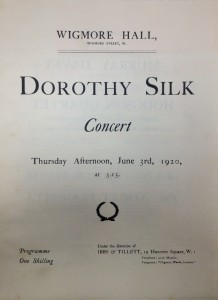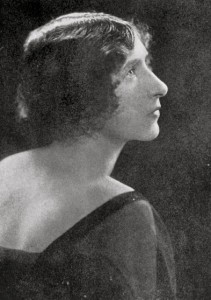Searching for voices of the past
Rachel Landgren has just returned from a 6-month visit to Southampton as an exchange student – here’s what she did while she was here:
Two weeks have passed since I arrived back in Melbourne from a six-month research trip hosted by the University of Southampton. It sounds clichéd but as I sit and write this post it feels like yesterday I was navigating the British Library for the first time, discovering the advantages of National Express, unearthing good coffee, and making the most of what I was repeatedly told was the best summer in 6 years.
Before I go on—it is probably best to introduce myself—my name is Rachel Landgren and I am a PhD Candidate from the Melbourne Conservatorium of Music, at the University of Melbourne. I am researching a generation of female singers who broke away from the hegemony of the opera house and cultivated an niche in vocal performance at the beginning of the twentieth century in England. Initially I intended to organise a 6-week whirlwind tour of archives in the UK. This plan was cast aside when I was fortunate enough to receive an Australian Endeavour Research Fellowship to undertake six-months of archival research under the guidance of Prof. Jeanice Brooks.
Coming from an Australian summer it was a shock to the system when I arrived in the UK on the 18th of March. Slowly but surely the freezing weather dissipated, allowing me to experience England at its best. Based in London I made regular trips to Southampton for supervision meetings with Jeanice, attended postgraduate seminars and made the most of practice studios and study spaces. Research is often a solitary discipline and the Tuesday seminars provided an opportunity to hear about other projects. Informal drinks at the Arlott Bar followed, offering a chance to mingle with other postgraduate students. I could not let this opportunity pass without thanking Xin Ying for our numerous conversations over coffee in the Cafe.

On the whole my weekdays were very predictable. I maintained regular contact with my Melbourne supervisor, Dr. Sue Cole, who along with Jeanice helped provide introductions to archival staff and musicologists around the UK. Coming from the other side of the world I made the most of regular access to archives and libraries including the Royal College of Music, the Centre for Performance History, Morley College, the Holst Birthplace Museum and the BBC Caversham Archive. Distinctly aware of the limited access I would have on return to Australia, I went a little overboard photographing and transcribing everything and anything that could prove useful in the future.
Instead of turning this post into a ‘show and tell’ of different developments in my research, I thought I would take this opportunity to expand upon the life and career of soprano Dorothy Silk (1883-1942). Silk was one of a select number of sopranos who forged a professional career outside the opera house. Following her early death, The Times declared she was the ‘unrivalled Bach singer of her time’ and the Musical Times stated she ‘held a position in English music that not been quite paralleled’.

Unfortunately, because no recordings are available, Silk has been mostly forgotten. Therefore the presence of any information at the numerous archives I visited was particularly exciting. By the end of my trip I amassed a collection of press clippings, letters, photographs and programmes—all of which helped answer a number of questions about her family, her role in the early twentieth-century music scene and why she was so quickly forgotten. I was able to present this research at the Postgraduate Study Day at Southampton and the ‘Women’s Histories: The Local and Global’ Conference jointly hosted by the International Federation for Research in Women’s History and Women’s History Network at the University of Sheffield. Although I was the only speaker from a musicology background, the conference contextualised the social and political environment effecting women in my research. Never one to miss a sightseeing opportunity, I also took advantage of the Sheffield’s close proximity to Chatsworth House and the Bronte Parsonage.
With what might be called perfect symmetry the end of the English summer signalled the end of my trip. On the 17th of September I departed London for the Melbourne spring. I would like to take this opportunity to thank Endeavour Australia for their generosity and express my gratitude for the support of staff and students at the University of Southampton, in particular Prof. Brooks for her wonderful guidance. I look forward to maintaining these connections and visiting Southampton again in the near future.

